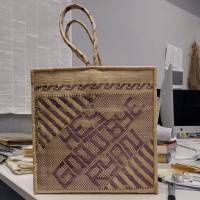Table of Contents
Commodities, capitalism, and private property
Commodities, capitalism, and private property
Week 3: A world of commodities
Ryan Schram
ANTH 1002: Anthropology in the world
Monday, August 15, 2022
Slides available at https://anthro.rschram.org/1002/2022/3.1
Main reading: West (2012)
Other reading: Marx ([1867] 1972)
Three objects
It’s time for show and tell. Take a look at the three things Ryan has brought to class today (or view these pictures)
They are different, but which differences do you think are the most important or meaningful?
Talk for a minute amongst yourselves (in person or in the chat) and then let’s discuss this as a group.
Commodities and capitalism
- Commodities are bought and sold for a price.
- You can think of commodities as a “sphere of exchange.” When you exchange commodities for money, and back again, you are following certain rules.
- The sale of commodities generates a profit.
- A system of producing, selling and distributing commodities as the main form of economic system is associated with capitalism.
Capitalism is…
- Capitalism is a system in which the means of production are privately owned by one social class.
- Capitalism is a system in which nobody else has access to the means of production; in order to live, people have to sell their labor.
Talk about selling out…
A worker under capitalism brings “his own hide to market and has nothing to expect but – a hiding” (Marx [1867] 1972, 343).
What do you think he means by this? Buzz about this. What do you associate with the word Capitalism? Marxism? When did you first hear these words? Have you ever read the Communist Manifesto?
Money and profits
Let C represent a good, e.g. boots, cell phone, gum.
Let M represent money.
- C—M—C’ The simple exchange of goods.
- M—C—M’ The making of profit through the exchange of commodities.
Marx wants to know why society moved from #1 to #2.
Marxist analysis is about finding contradictions
- It was the best of times, it was the worst of times.
- Never before can we feed so many, and never before have so many people been without food.
- Everyone in Australia can afford “fast fashion,” but people in Bangladesh work themselves to death for minimal wages (Yadlapalli and Rahman 2021).
- Even on a good day, mass production kills people (Ross 2021).
- Social systems and the global systems are defined by their contradictions. They contain an ongoing struggle of life and death.
Mauss and Marx
In developing his ideas, Mauss did not borrow directly from Marx.
At the same time, Mauss’s idea of the gift can be seen as the logical opposite of the Marxist conception of the commodity:
- Reciprocity is the exchange of unalienated objects between people who are interdependent and mutually indebted.
- Commodity exchange (buying and selling in a capitalist system) is the exchange of alienable things between people who are independent of each other.
The other “M” word
A world in which one meets one’s needs through buying and selling on a market may also sound like a social world based on individual personal freedom. For them, this is modernity.
- Is this “the best of all possible worlds”?
Marx is critical of the dogma of Homo economicus (or the innate economic rationality of each individual), but also believes that there is a logic in history.
- Is history a story of linear progress to a goal?
References and further reading
Marx, Karl. (1867) 1972. “Capital, Vol. 1 [Selections].” In The Marx-Engels Reader, edited by Robert C. Tucker, 309–43. New York: W. W. Norton & Company.
Ross, Emma. 2021. “Fast Fashion Getting Faster: A Look at the Unethical Labor Practices Sustaining a Growing Industry.” International Law and Policy Brief, October. https://studentbriefs.law.gwu.edu/ilpb/2021/10/28/fast-fashion-getting-faster-a-look-at-the-unethical-labor-practices-sustaining-a-growing-industry/.
West, Paige. 2012. “Village Coffee.” In From Modern Production to Imagined Primitive: The Social World of Coffee from Papua New Guinea, 101–29. Durham, N.C.: Duke University Press.
Yadlapalli, Aswini, and Shams Rahman. 2021. “Years After the Rana Plaza Tragedy, Bangladesh’s Garment Workers Are Still Bottom of the Pile.” The Conversation. April 22, 2021. http://theconversation.com/years-after-the-rana-plaza-tragedy-bangladeshs-garment-workers-are-still-bottom-of-the-pile-159224.




